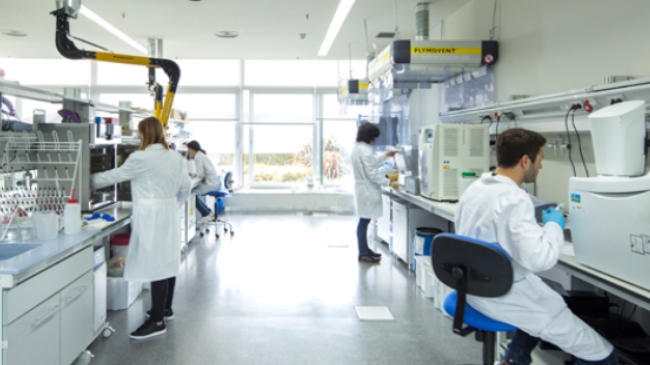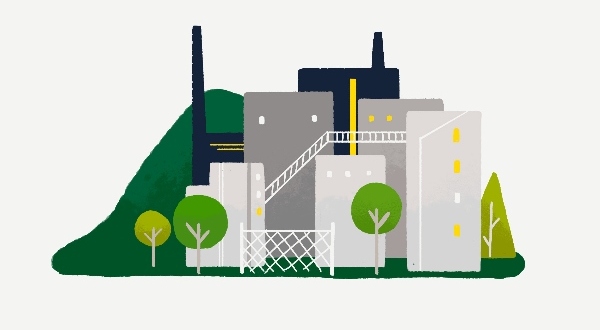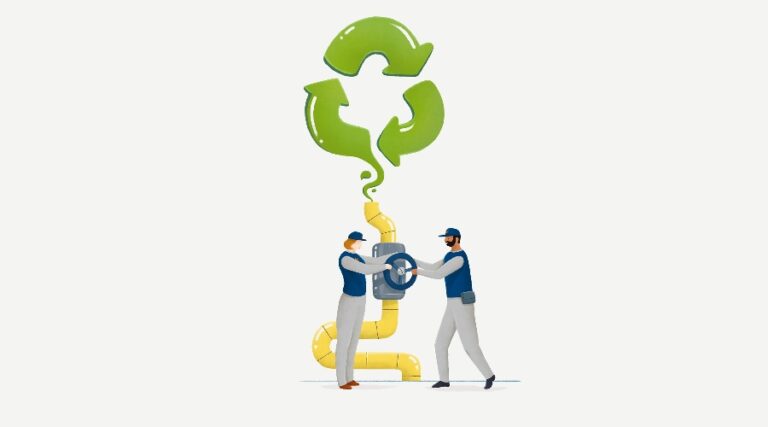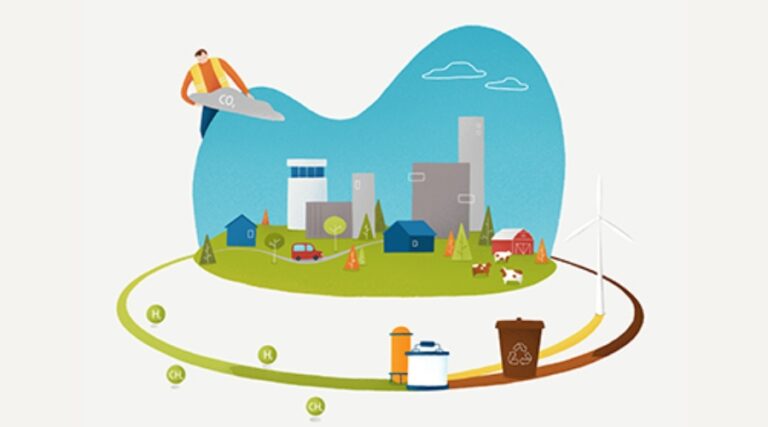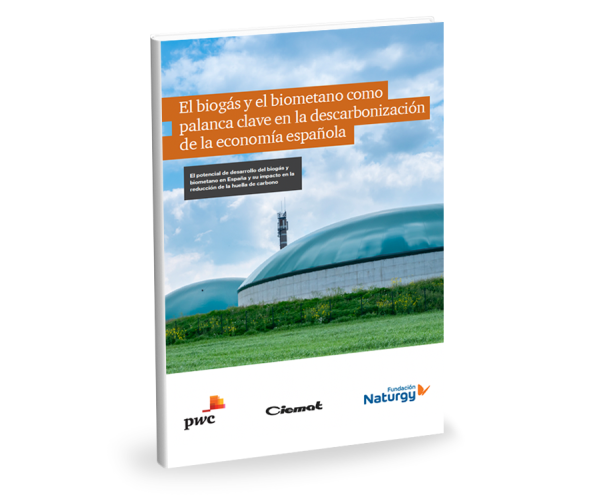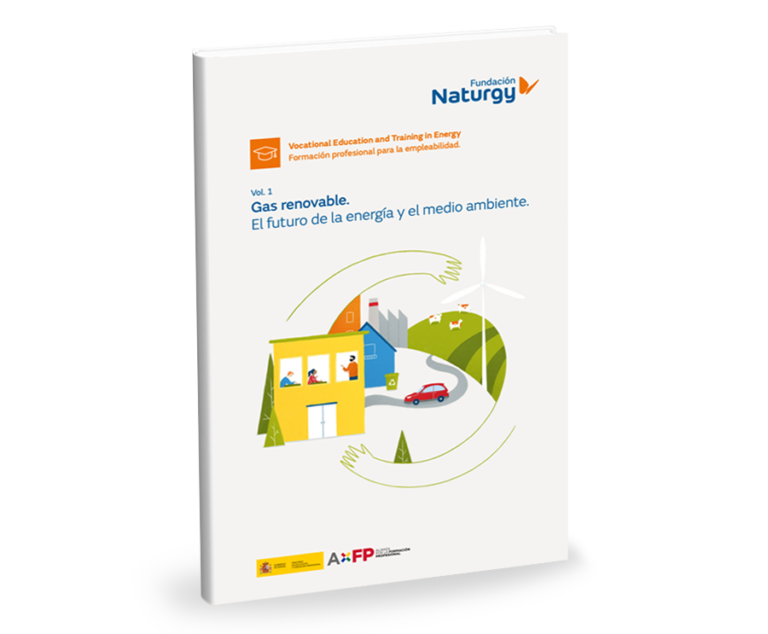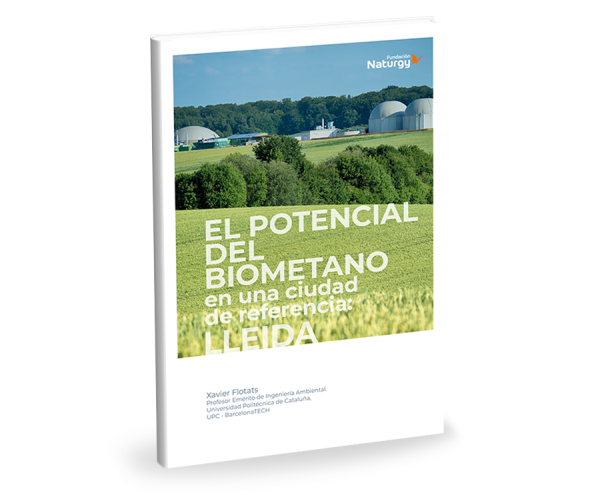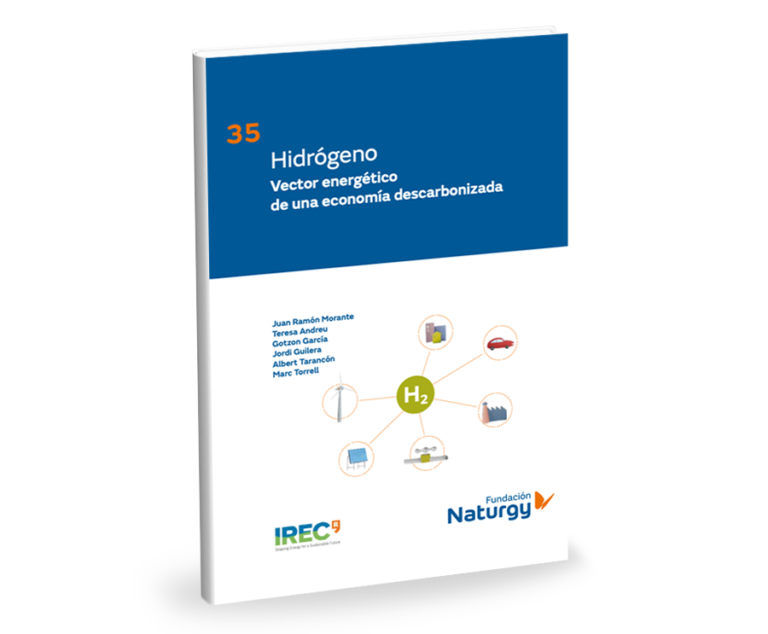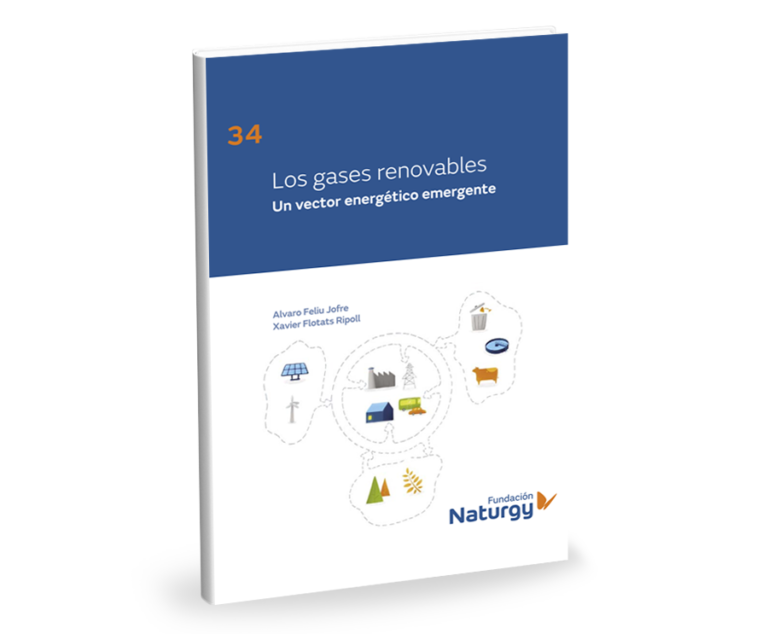Renewable gas
Circular energy for a decarbonised future
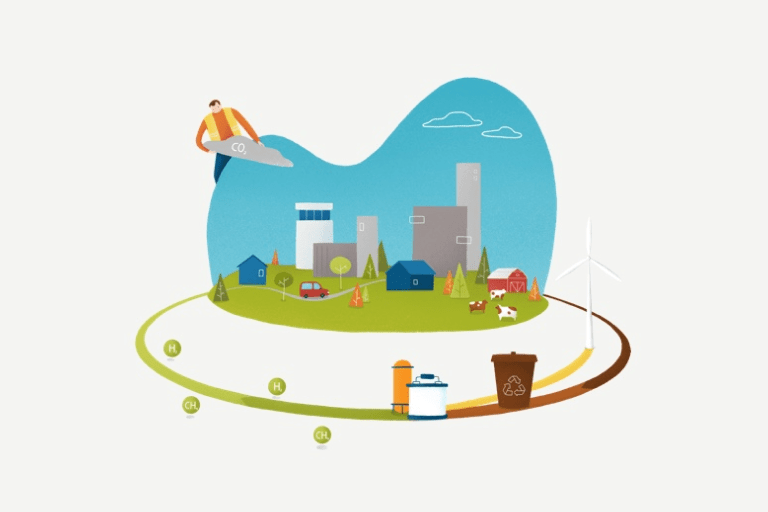
We are invested in innovative projects to develop renewable gas and inject it into the gas distribution network
Developing biomethane and green hydrogen is part of our vision of the future as a company to transform the current business model and lay the foundations to keep creating value through the energy transition.
To achieve our shared decarbonisation objectives, we must work with a mix of energy solutions that include not only speeding up electrification, but also continuous growth in renewable energy development. It is equally necessary to invest in renewable gases like biomethane and hydrogen, which will enable us to decarbonise sectors which are difficult to electrify such as the industrial heat sector and some transport applications; in Spain, it is estimated that at least 40% of CO2 emissions have no electrifiable alternative, meaning that renewable gases offer the most efficient alternative.
Renewable gas is obtained by processing urban, agricultural, livestock and food industry waste and by filtering wastewater. It is simple to inject into existing gas distribution networks and can be used in the same way as natural gas.
Benefits of renewable gases
They reduce greenhouse gas emissions by avoiding the CO2 emissions from the fuel they replace.
They reduce energy dependence on foreign sources, because they are produced domestically.
They drive the circular economy, because they contribute to the sustainable management of agricultural or livestock waste.
They create jobs and settle the population in rural areas, because biomethane is produced mainly from agricultural or livestock waste.
Find out the benefits and potential of renewable gas and our projects in this area
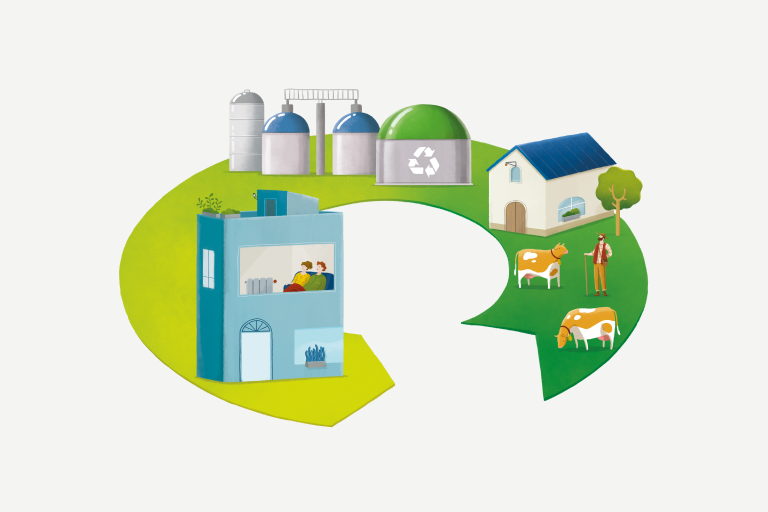
Our projects
We have projects along the entire integrated value chain, from waste management and biogas production to the production, distribution and marketing of biomethane.
We have experience in developing renewable gas on a commercial scale thanks to projects launched in recent years, such as the Elena landfill project, as well as new projects that are beginning to take shape, such as the Vila-sana project (Lleida) or the innovative project at the wastewater treatment plant (WWTP) of Bens, in A Coruña.
What’s more, we have an additional portfolio of more than 60 projects in various stages of development.
We have been pioneers in the development of biomethane in Spain and have three plants that are currently injecting into the gas network: the Mixed Renewable Gas Unit in A Coruña, which produces biomethane from biogas obtained in the wastewater treatment process; the Elena Plant in Cerdanyola del Vallès, which produces biomethane from biogas obtained from municipal solid waste and marked a milestone in the energy transition in Spain with the first injection of renewable gas from landfill into the distribution network; and the Vila-sana Plant, located on the Porgaporcs livestock farm.
Our two biomethane plants have an installed production capacity of 4.1 MW.
Our projects
Other projects that inject into our distribution network
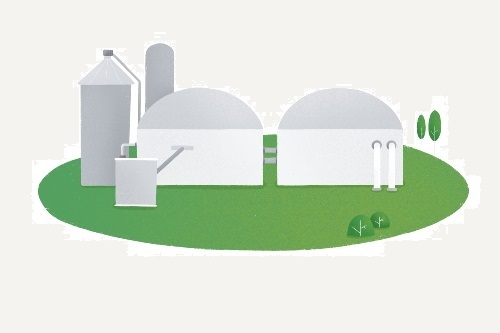
UNUE Project
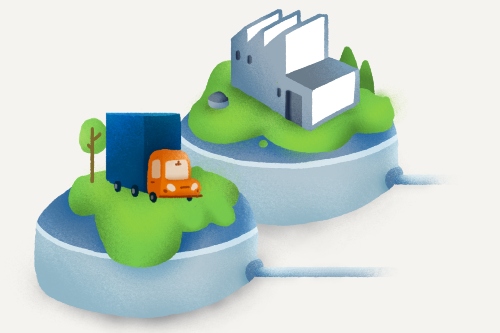
Livestock waste from the Torre Santamaría farm (Balaguer, Lleida) is converted into biomethane in this plant and then injected into the network of Nedgia, our gas distributor. This project was made possible by Spain’s first long-term biomethane sale agreement, signed by Torre Santamaría with Axpo Iberia.

Can Mata landfill
Injection of biomethane into the urban waste distribution network from this controlled deposit, located in Els Hostalets de Pierola (Barcelona). It has a capacity of 70 GWh/year of biomethane, equivalent to the consumption of 14,000 homes, avoiding the emission of 17,000 tons of CO2 per year.
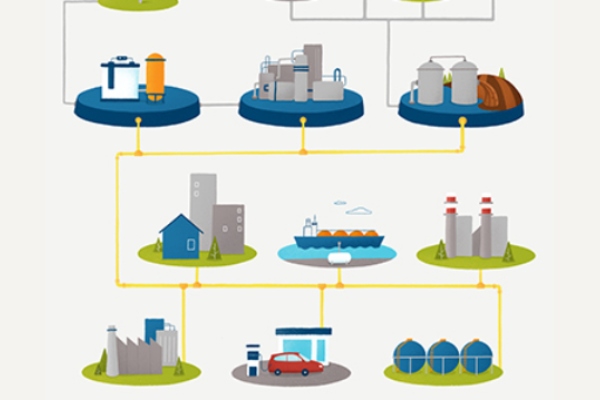
Injection of 24GWh/year of biomethane into the network from the Anaerobic Digestion and Composting Plant of the CGRVO and the Granollers Wastewater Treatment Plant (WWTP) of the Besòs Tordera Consortium, in Barcelona, equivalent to the consumption of 4,800 homes, avoiding the emission of 5,088 tons of CO2 per year.
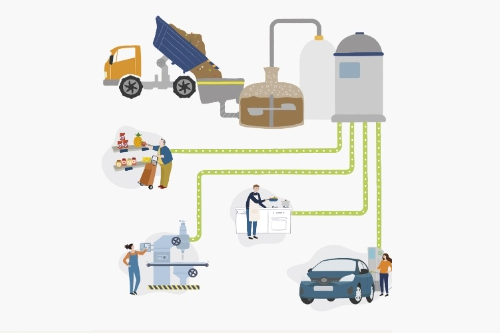
Construction of a facility in Noez (Toledo) by the joint venture formed by Suma Capital and SITRA, which has reached an agreement with Nedgia for the injection of 40 GWh/year of biomethane into the gas network of our distributor. This volume is equivalent to the annual energy consumption of 6,500 homes.
Other projects
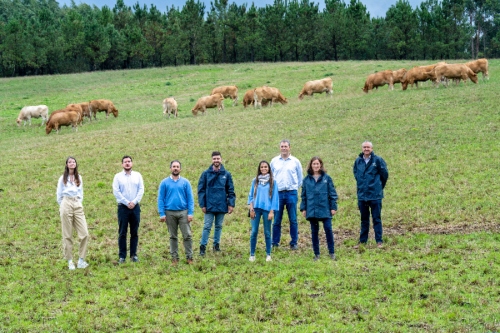
Project in Galicia with Repsol and Reganosa to transform surplus slurry (cattle, pig and poultry) and other organic waste from this Autonomous Community into biomethane, with the aim of producing renewable gas to cover 7% of demand for gas in Galicia.
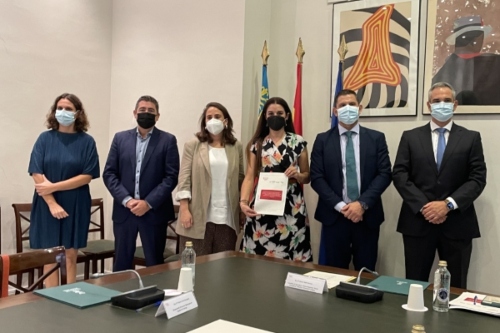
Project in the Valencia Region carried out with Enagás and Genia to obtain biomethane from waste rice straw, offering a solution to the environmental problems caused when this waste is burned.
We have been researching the development of hydrogen for years due to the huge potential that it represents for our country, which could be a strategic exporter of a new renewable energy, capable of being transported long distances in the existing infrastructure and integrated with the electricity network to create an efficient and resilient energy system.
Consequently, we are in the process of developing large renewable hydrogen production hubs linked to Just Transition zones, especially in areas affected by the closure of thermal power plants. The aim of multi-demand hubs is to promote the development of new markets for direct consumption in industry, injection into the gas network for marketing with guarantees of origin, mobility or the production of hydrogen derivatives.
